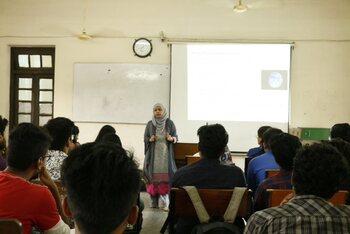Context
The textile and garment sector is vital for Bangladesh’s economy and social development. While the industry has been enjoying an impressive growth rate over the last two decades, further growth and sustainable development remain a challenge due to the skill gap of the industry’s mid-level managers. At the same time, several tragic incidents, such as the collapse of the Rana Plaza garment factory, revealed the shortcomings of the decent work deficits in the textile and garment industry throughout the country. The Government of Bangladesh has highlighted the need for skilled mid-level managers in the National Education Policy from 2010, as well as in the seventh Five-Year Plan. According to these strategies, skilled mid-level managers are a prerequisite for robust and sustainable economic growth in the country’s most important manufacturing sector. The higher education institutions of Bangladesh are crucial for the education of the mid-level managers and therefore, for the improvement of the precarious working conditions in the industry. Linking higher education with the demand-oriented skills framework of the industry and establishing international university partnerships in order to keep up with latest research on international social and environmental standards are recognised as the two essential elements for improving the quality of higher education. However, the development of effective mechanisms for cooperation with businesses and international universities are still a challenge for higher education institutions in Bangladesh. At the moment, universities do not offer training opportunities tailored to the specific needs of the textile and garment sector and lack international university partnerships and peer to peer learning opportunities. Therefore, the potential of university-industry cooperation and collaboration needs to be bolstered.
Objective
The HEST project has improved the capacities of public and private universities through the German-Bangladeshi university network and has narrowed down the skill gap of the mid-level managers in line with the requirements of the industry and responsible corporate management practices.

